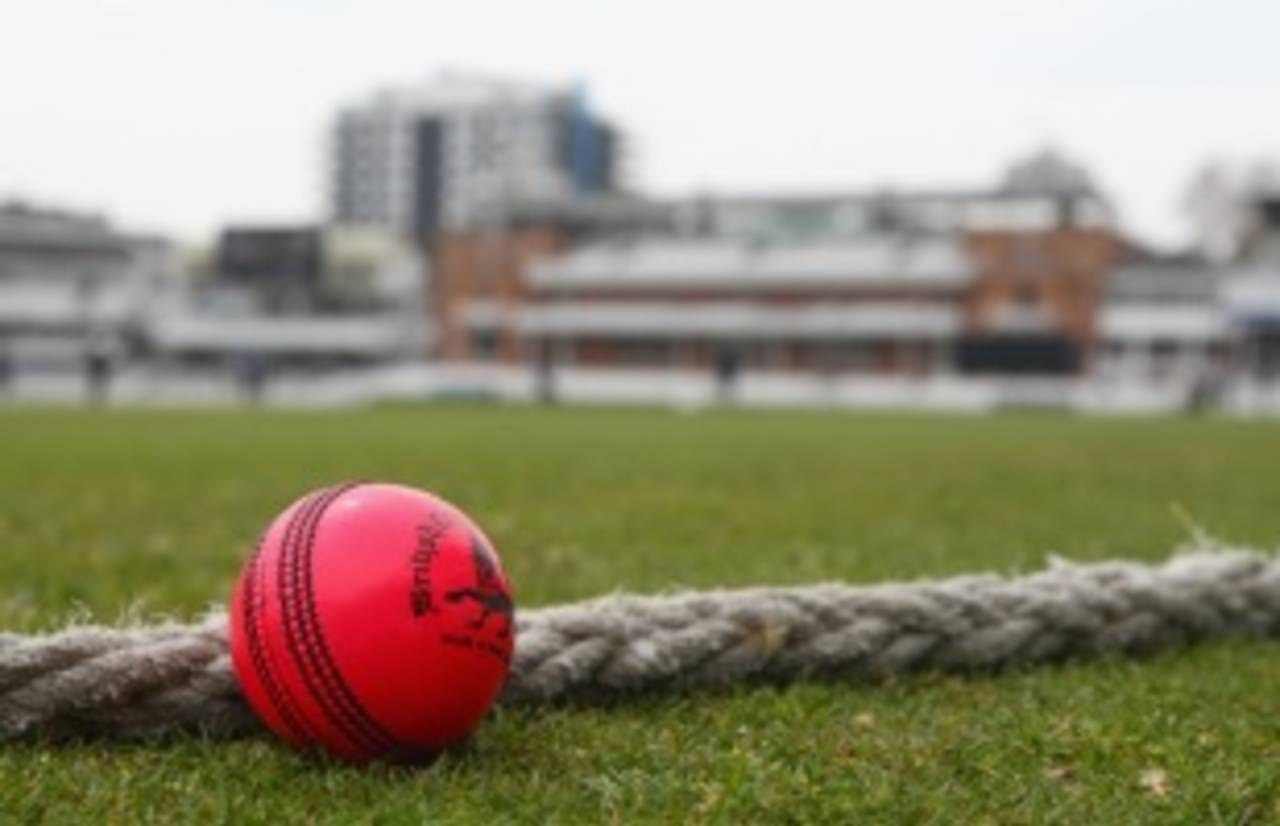Umpires given power to curb ball tampering
In a bid to clamp down on ball tampering, the ICC has strenghened the umpires' authority by agreeing a two-step on-field process to deal with the issue
ESPNcricinfo staff
29-Jun-2013

The ICC is looking to curb ball tampering with a two-step on-field process • Getty Images
Umpires have been empowered by the ICC to take action on ball tampering even if they only have suspicion that the condition of the ball has been changed and have no eye witness evidence.
The decision, taken by the ICC Board at their annual conference in London, comes in the wake of controversy in the Champions Trophy when England faced allegations of ball tampering.
The former England captain, Bob Willis, had said that umpire Aleem Dar was 'on England's case' and 'that one individual is scratching the ball for England' when the ball was changed during their tie against Sri Lanka at The Oval.
The ICC has now formally asserted that umpires are free to act on any unproven suspicions of ball tampering. They have approved a two-step on-field process, including penalising the fielding team on the second offence and reporting the fielding captain. The rule will come into effect on October 1.
According to the new regulation, if the umpire believes the condition of the ball has been "changed" but there is no witness to identify which player was behind it, the umpire will replace the ball and issue a first and final warning to the fielding captain.
If umpires suspects a second offence, they can award a five-run penalty to the batting team, replace the ball again and report the fielding captain under the ICC code of conduct.
England gained substantially more reverse-swing in their opening match against Australia and have responded to veiled expressions of suspicion by countering that the skill of their bowlers and superior ball management is at the heart of their success.
But the umpires - Aleem Dar and Billy Bowden - changed the ball during their second match against Sri Lanka. England's captain Alastair Cook was visibly agitated by the change of ball, which he felt contributed unfairly to England's defeat.
The official word from the ICC at the time was that the ball was changed because it was misshapen.
Although no ICC official or member confirmed if that incident was discussed at the meeting, it is understood that it did play a part in the rule change.
While the five-run penalty for ball tampering is not new, the process for the on-field umpires to follow is a new development. It was mooted by the ICC's cricket committee and chief executives committee, and ratified by the ICC Board.
It is understood the main reason behind making amendments were to remove the "grey areas" within Law 42.3, which deals with the condition of the ball.
Currently, umpires - if they feel that the condition of the ball has changed beyond the permitted allowance - can inform the fielding captain that they are replacing the ball in addition to awarding five penalty runs.
Umpires, though, have been wary to take such an action for fear of potential consequences.
The ICC Board sanctioned two other changes to the playing conditions as well, also to be implemented from October 1. Firstly, the on-field umpire will be able to ask the television umpire to check if a delivery that claims a wicket is a no-ball on height, if he has doubts.
And zing wickets - the stumps and bails that have LED lights that flash when they are struck - will come into use in ODI and Twenty20 cricket.
These stumps were used in Australia's Big Bash League T20 tournament, and the ICC had commissioned an independent assessment of the technology before adopting it.